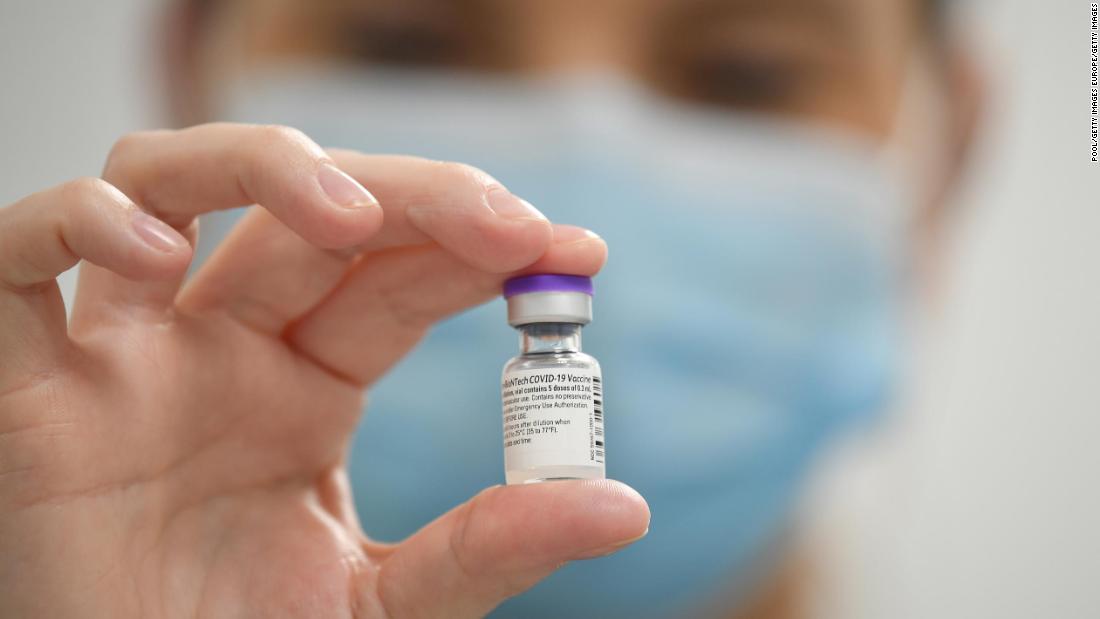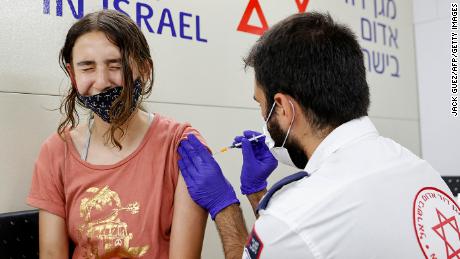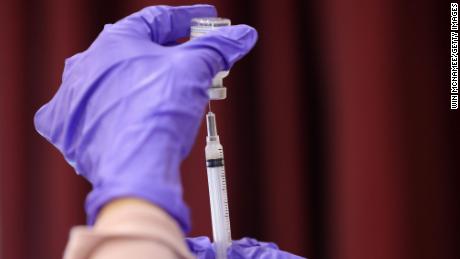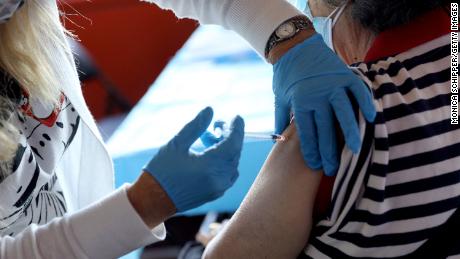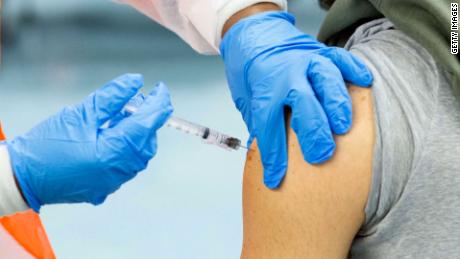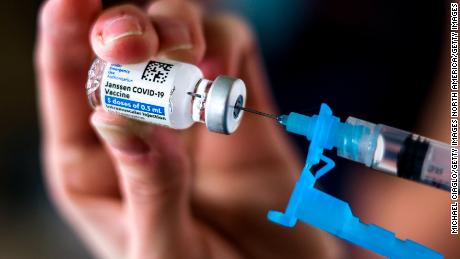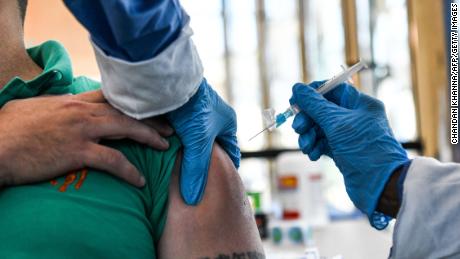What Pfizer’s plan for a third vaccine dose means for you
The companies made their announcement without releasing any new data, but noted plans to publish new information soon. A Pfizer spokesperson later told CNN that the company plans to file for emergency use authorization for a booster dose with the US Food and Drug Administration in August.
The statement also said, “We are prepared for booster doses if and when the science demonstrates that they are needed.”
But that science is unclear, and there is still much to learn about the potential need for booster doses of coronavirus vaccine. Here is what we do and don’t know.
“We respect what the pharmaceutical company is doing, but the American public should take their advice from the CDC and the FDA,” National Institute of Allergy and Infectious Diseases Director Dr. Anthony Fauci told CNN on Friday. “The message is very clear: the CDC and the FDA say if you have been fully vaccinated at this point in time, you do not need a booster shot.”
Known — vaccines still work, even against variants
Vaccine makers are looking ahead at what might be needed in the future while public health officials are focused on the present need for vaccinations, Dr. Jerome Adams, former US surgeon general under the Trump administration, told CNN’s John Berman on Friday morning.
The Israeli government’s statement said that as of June 6, the vaccine provided 64% protection against all infections, including asymptomatic infection and mild disease, and 93% efficacy in preventing severe disease and hospitalizations.
When it comes to whether booster doses might be needed to help protect people against emerging coronavirus variants specifically, Schaffner said that the Pfizer vaccine and others already have been shown to still offer some protection.
Overall, since protection from the vaccine against severe Covid-19 still remains high, Schaffner said that fully vaccinated people should not worry.
“Protection against hospitalization and intensive care unit admission and dying continues — and so, those antibodies that are produced by the vaccine are really still providing very solid protection for persons who have received the vaccine,” Schaffner said, adding that he is fully vaccinated with the Pfizer vaccine.
“We had hoped that the vaccines could protect not only against serious disease, but our getting infected. They do have some impact in diminishing our chance of getting infected,” he added. “It’s not as good as we had hoped, but that’s less important, because the main goal of the vaccine was to keep us out of the hospital, and vaccines continue to do that very well.”
Unknown — when we will need third doses of vaccine
Experts say more data is needed to decide on whether people might eventually need booster doses of Covid-19 vaccines.
A rise in so-called breakthrough cases might offer a clue in the future, federal vaccine advisers said during a meeting in June. A “breakthrough” infection refers to Covid-19 cases that occur after someone has been fully vaccinated.
Committee members mostly agreed that more data around the benefits of boosters is needed — but a rise in “breakthrough” infections could be a sign in the future that immunity is waning and it’s time to reevaluate the need for boosters.
“I think the only thing we can do at this moment is, if we start to see an uptick in reinfections in people, or new infections in people who have been vaccinated, that’s our clue that we need to move quickly,” ACIP member Dr. Sharon Frey, who is a vaccine specialist at St Louis University Medical School, said in last month’s meeting.
In general, “what we are looking for is both a very careful look at breakthrough cases and also whether there is currently an uptick in the elderly — that would be pretty clear because they are currently so well controlled,” said ACIP member Dr. Sarah Long, a professor of pediatrics at Drexel University College of Medicine.
“It would be a mistake to be giving booster doses without both some information about number one: Do they boost? And a little bit of safety data,” Long said. “So that we would have some idea that there would be benefit of the booster before we might incur unknown risk.”
Known — some people might benefit more from a boost than others
In the future, there are some people who might benefit from booster doses of coronavirus vaccine more than others, including those who are immunocompromised. Schaffner said patients who fall into the category represent between 2% and 4% of the US population.
For instance, organ transplant recipients might not have an adequate response to coronavirus vaccines because they take drugs to suppress their immune systems. That helps reduce the risk of the body rejecting new organs but may also limit responses to vaccines.
Among patients in the study who had no measurable antibodies after receiving two doses of vaccine, one-third of them saw a rise in antibodies after a third dose — and among those with low antibody levels after two doses, all of them saw an increase after a third dose.
But there’s not much data on vaccinations in immunocompromised people because when pharmaceutical companies tested coronavirus vaccines in clinical trials last year, they specifically excluded people who were taking immunosuppressive drugs due to potential risks.
In last month’s meeting, the CDC’s ACIP panel discussed this and the high-risk groups of people — immunocompromised patients, long-term care facility residents, older adults, and health care personnel — who may benefit from booster doses more than the general public.
“I have personally seen people die well after two full doses of mRNA vaccine because, we believe, they were immunocompromised and didn’t have full protection,” said ACIP member Dr. Camille Kotton, who cares for immunocompromised patients at Massachusetts General Hospital and Harvard Medical School.
“So, for me, this is the next important frontier that we really need to deal with and as rapidly as possible,” Kotton said about booster doses.
Kotton encouraged her colleagues on the committee to consider proceeding with recommendations for booster shots “as soon as we have good science” available on which to base decisions.
“I would wait for the additional data to be available, including the safety data as well,” Kotton said, adding, “This is a hot topic.”
Known — vaccine makers will seek full approval soon
There are three coronavirus vaccines authorized for emergency use in the United States: the two-dose Pfizer/BioNTech vaccine for ages 12 and older, and the two-dose Moderna vaccine and one-dose Johnson & Johnson vaccine for ages 18 and older.
The companies Pfizer/BioNTech and Moderna have begun their applications to receive full FDA approval to use their vaccines and Johnson & Johnson has said it intends to file an application but has not yet done so.
“The most important thing for the FDA to do right now is not to consider a Pfizer request for a booster shot. It’s actually to get full FDA approval for the vaccine, because that will change the dynamic,” del Rio said, adding that it will be easier to get more people vaccinated.
Progressing from authorized to approved would allow manufacturers to market and directly distribute their vaccines. It could also have an impact on vaccine mandates — and perhaps sway skeptics hesitant to get the vaccines now.
“I’m worried about the fact that the FDA quite frankly hasn’t yet given us an update on full approval of these vaccines, which we know is causing hesitancy in many people and which also is causing companies and businesses and schools to delay their decisions about vaccine mandates,” Adams said.
![]()


